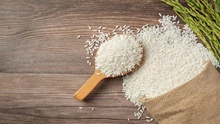
India's largest manufacturer of fertilizers, IFFCO Ltd, has announced a price cut of nearly 14% for a commonly used mix of crop nutrients. This decision is expected to lower farming costs and reduce government subsidies in a year of the global food crisis, which has been partially driven by the higher costs of agricultural chemicals.
An IFFCO official stated that the company would be passing on the benefits of lower costs to its customers. The price reduction is a result of higher efficiency in output, savings due to newer technologies such as nano fertilizers, and an increase in domestic production capacity.
Crop nutrients are subsidized by the Indian government to millions of farmers, with the government reimbursing manufacturers over 80% of the market price for most types. India is one of the world's largest consumers and importers of fertilizers, and the country's food security is closely linked to the sufficient availability of a range of fertilizers.
The cooperative, IFFCO, will be reducing the price of NPKS, also known as complex fertilizer, by Rs. 200 to Rs. 1,200 per bag. This will help farmers in the upcoming Kharif or summer-sown season. The official requested anonymity because he is not authorized to comment on financial matters.
The Indian government's fertilizer subsidy for the upcoming fiscal year has been estimated at Rs. 1.75 lakh crore, down 22.2% from the revised estimates of the current financial year. The country's spending on food and fertilizer subsidies accounts for one-tenth of the total government expenditure.
India is aiming to achieve self-sufficiency in the output of some fertilizers, such as urea. The Mansukh Mandaviya-led fertilizer ministry, in coordination with the external affairs ministry, has overseen a series of long-term bilateral deals at steady prices to minimize price swings in imported raw materials.
Several new factories are being opened or planned in the next five years to achieve self- sufficiency in fertilizer production. Indian companies have for the first time invested in several North African mineral-rich nations as part of measures aimed at hedging against price spirals in fertilizers and volatility.
The reduction in fertilizer prices is expected to benefit farmers in India, who have been hit hard by the COVID-19 pandemic and high input costs. The move will also help the Indian government reduce its fertilizer subsidy bill, allowing it to allocate funds to other critical sectors such as health and education.











